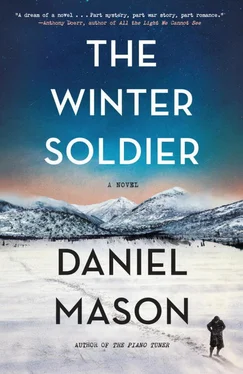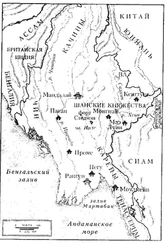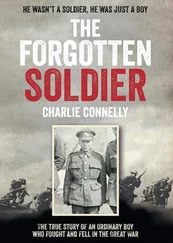Billroth, said Feuermann, would dine on gherkins after coitus; Rokitansky never took his lab coat off. Titillatio had once been prescribed by the great van Swieten to treat the frigidity of Empress Maria Theresa; it was what saved the Empire. Once, from nowhere, Feuermann said, “Perhaps one day we might marry sisters.” Lucius said he thought this was a fine idea and asked if he had read Klamm’s paper on bromides for palpitations of unknown cause.
But of all the cases he studied, it was the neurological ones that fascinated him the most. How extraordinary was the mind! To sense a limb years after amputation! To see ghosts at one’s bedside! To create all the symptoms of pregnancy (swollen abdomen, amenorrhea) by wish alone! The thrill he felt when he solved the most difficult cases was almost sexual. There was a beautiful clarity in the patterns, the possibility of locating a tumor simply by whether it destroyed language or vision, the opportunity to reduce the complexity of other people to the architecture of their cells.
At the university was a professor called Zimmer, famous for his dissections of the thalamus done back in the ’70s, who had later published a book called Radiological Diagnosis of Diseases of the Head. It was Feuermann who found it, Lucius who couldn’t put it away. Soon he was spending so many hours with the library’s copy that he purchased one himself.
Page after page showed radiographs of the head and face. Little arrows illustrated the growths of cancers and subtle hairline fractures. He learned to make out the thin, twisting courses of the sutures, the “Turkish saddle” that held the pituitary, and the darker swirlings of the skull base. But his eyes kept traveling to the smooth dome of the calvarium. There, the light was hazy, like puffs of smoke blown into the skull. Nothing to see… just cloudy shades of grey and lighter grey, tricks of shadow that played upon the eye and yielded nothing. And yet! Thought was there, he told himself, astounded. In that grey haze lay Fear and Love and Memory, the countenances of loved ones, the smell of the wet cellulose, even the vision of the technician the moment the film was shot. Doctor Macewen of Glasgow, one of his gods, had called the brain the dark continent . Before the radiograph, one could only see the living brain in the tiny pearl of optic nerve inside the eye.
He approached Zimmer unannounced in the Department of Neurology.
What was lacking in his book, said Lucius, seated before the old professor, in a room piled high with specimens and slide boxes, What was lacking, with all due respect, Herr Professor Doktor, were images of the vessels . If one could invent an elixir that could be picked up by the radiograph, if one could inject it into arteries and veins and show the twisting tributaries… if one could just resolve this haze…
Zimmer, with the stringy hair and overgrown muttonchops of a professor long sent to pasture, licked something off his monocle before polishing it and placing it before his eye. He squinted as if in disbelief at the student’s impudence. On the wall behind him were portraits of Zimmer’s professor, and his professor’s professor, and his professor’s professor’s professor, as much a royal line as any in medicine, thought Lucius, who prepared himself to be dismissed. But something in the boy’s gangly tactlessness must have intrigued the old man. “We inject mercury to show the vessels in cadavers,” he said at last. “But with live patients, it can’t be done.”
“What of calcium?” asked Lucius a bit vertiginously, but pressing on, “Iodine, bromine… I’ve been reading… If you could see the vessels, you could watch blood flow, you could see the outlines of tumors, strokes, the narrowing of arteries—”
“I know what you could see,” said Zimmer sharply.
“Thoughts,” said Lucius as the old man marked the end of the visit with an arch of his eyebrow, releasing the monocle and catching it in his hand.
But two weeks later Zimmer called him back.
“We will begin in dogs. We can prepare the solution here and inject it at the X-ray machine in the School of Radiology.”
“Dogs?”
Zimmer must have read the unease on the student’s face. “Well, we can’t just use Professor Grieperkandl, can we?”
“Professor Grieperkandl? Well, no, Herr Professor.”
“Our findings would not be generalizable, would they?”
Lucius hesitated. The possibility that a professor of Zimmer’s stature was making a joke about a professor of Grieperkandl’s stature was so far beyond contemplation that Lucius took the question literally at first. But what to answer? Yes, and he would be agreeing to vivisect his old instructor. No, and he would imply that the great anatomist was so abnormal…
“We are not going to experiment on Professor Grieperkandl,” said Zimmer.
“Of course not, Herr Professor!”
His hands twisted. Then Zimmer, clearly amused, opened a tin on his desk and popped a candy inside his mouth. He held another out across the desk.
“Caramel?”
His fingers were dark with tobacco and smelled of chloroform; now Lucius noticed an open jar containing what appeared to be a brainstem on his desk.
For a moment Lucius hesitated, eyes darting to the jar and back.
“Of course, Professor. Thank you, Herr Professor Doktor, sir.”
The main hospital was nearly a kilometer from Zimmer’s lab. For two weeks Lucius brought the dogs there. As none of the fiacres would stop to take the animals, he had to push them in a cart. In the streets, the dogs—those that had survived the procedure—were prone to seizures. On the crowded sidewalks, people turned to watch the pale young man in his loose-fitting suit, wheeling the twitching animals along. He steered far away from children.
The X-ray machine was often broken, and the lines to use it were long. One day he had to wait five hours while the Royal Family had themselves radiographed with their decorations.
He returned to his professor. “How much is an X-ray machine?” he asked.
“To purchase? Ha! Far beyond the budget of this laboratory.”
“I understand, Herr Professor Doktor,” said Lucius, his eyes cast down. “What if it were purchased with a donation, from a family of means?”
For the following weeks, he returned home only to sleep, taking the grand staircase three steps at a time. Past the bust of Chopin and portrait of Sobieski, down the grand hall, with the medieval tapestries and the gilded, Lucius-less Klimt.
He rose before dawn. He injected mercury salts and solutions of calcium, but the images were poor. Oil suspensions provided brilliant images of the veins, but they formed emboli. Iodine and bromine showed more promise, but too much killed the animal, while lesser quantities didn’t show up on the films. His increasing frustration was equaled only by the enthusiasm of his advisor. Zimmer’s elixir, the old man took to calling the substance that was yet to be, and he began to speculate whether minute increases of blood flow could be detected in areas of greatest activity. Ask them to move an arm, said Zimmer, and we might see a corresponding flood of light within the motor cortex, while speech would illuminate the temporal lobe. One day, with men.
And Lucius thought, I said that the very first day we met.
The dream of being able to see another person’s thinking was all that retained him.
Soon it was clear that they were far from any discovery. The few images they had were too blurry to be of much use, and Zimmer refused to publish them out of fear that another professor would steal his research. Now Lucius regretted having ever proposed the idea. He was sick of killing the poor dogs—eight by spring. At home, Puszek (VII) fled him, as if he knew. He had wasted time. Now Feuermann teased Lucius that it reminded him of the days when, slipping brain sections into their microscopes, the two of them pretended to see the snakelike curl of envy, or desire’s glimmering curve.
Читать дальше











